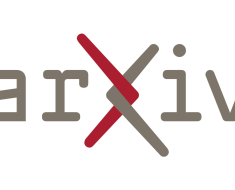The Power of Large Language Models
The landscape of healthcare is continually evolving, with new technologies promising to revolutionize various aspects of patient care. One such promising development is the use of large language models (LLMs) such as ChatGPT in the medical field. Recent studies have shown the potential of using these models to automatically extract a patient’s social needs from their clinical records. This innovative approach aims to address the challenges of identifying social determinants of health (SDoH) that play a critical role in a patient’s well-being after they leave the doctor’s office.
Unmasking Social Determinants of Health
Identifying SDoH effectively is vital because these factors, which include housing, transportation, financial stability, and community support, can significantly impact health outcomes. However, these determinants often remain hidden in clinical notes, with only about 2% identified through official diagnostic codes. Using LLMs like ChatGPT, healthcare providers can uncover these crucial social factors, with models identifying up to 93.8% of patients with adverse SDoH. This advancement could potentially transform care delivery and patient outcomes.
Addressing Bias in AI Models
While LLMs offer the potential for higher accuracy in identifying SDoH, there are concerns about the introduction of bias. A study published in npj Digital Medicine highlighted the variation in SDoH predictions when sentences included a patient’s race and gender, raising concerns about potential biases. These biases could lead to misidentification or misrepresentation of social needs in diverse populations. Fine-tuning of AI models has been suggested as a possible strategy to reduce algorithmic bias, and researchers are actively exploring this area.
Ethical Considerations
As with any technology, the use of generative AI tools to extract social needs from medical records raises several ethical considerations. These include patient consent, privacy, and the potential for harm and stigma. It is crucial that these considerations be addressed as LLMs are developed and implemented in healthcare settings. Ensuring responsible and ethical use of AI in healthcare is paramount, and the development of these technologies should involve input and feedback from patients.
Future of LLMs in Healthcare
Despite the challenges and concerns, the potential benefits of using LLMs in healthcare are clear. These models can help share information about local resources, improve health outcomes, and support clinical care and research. However, there remains a significant implementation gap, and more work is needed to address unintended consequences, improve generalizability in diverse populations, and ensure patient involvement in technology development. As this exciting technology continues to evolve, it’s crucial to keep these factors in mind to ensure that the benefits of LLMs are realized for all patients, regardless of their social determinants of health.





